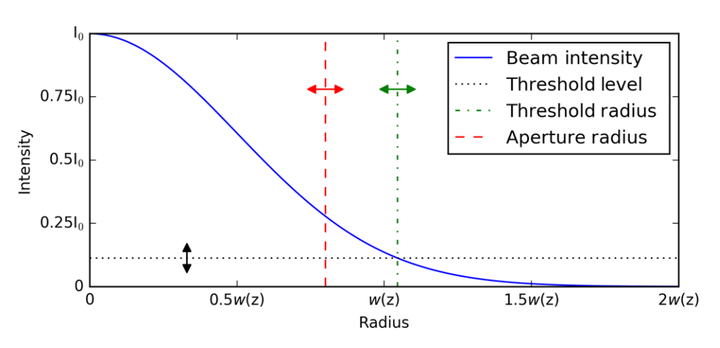Scale factor correction for Gaussian beam truncation in second moment beam radius measurements

Abstract
Charged-couple devices (CCD) and complementary metal oxide semiconductor (CMOS) image sensors, in conjunction with the second moment radius analysis method, are effective tools for determining the radius of a laser beam. However, the second moment method heavily weights sensor noise, which must be dealt with using a thresholding algorithm and a software aperture. While these noise reduction methods lower the random error due to noise, they simultaneously generate systematic error by truncating the Gaussian beam’s edges. A scale factor that is invariant to beam ellipticity and corrects for the truncation of the Gaussian beam due to thresholding and the software aperture has been derived. In particular, simulations showed an order of magnitude reduction in measured beam radius error when using the scale factor—irrespective of beam ellipticity—and further testing with real beam data demonstrated that radii corrected by the scale factor are independent of the noise reduction parameters. Thus, through use of the scale factor, the accuracy of beam radius measurements made with a CCD or CMOS sensor and the second moment are significantly improved.